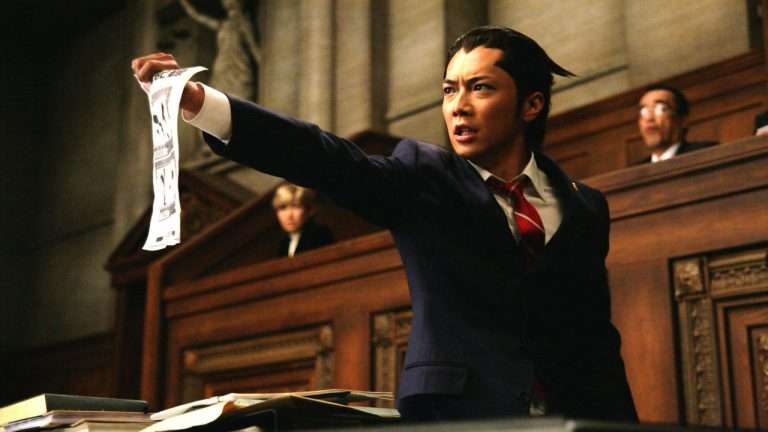Director Elene Naveriani’s new film, Blackbird Blackbird Blackberry (2023), opens with a realization. The protagonist, Etero (Eka Chavleishvili), who is in her late forties, is plucking her favorite blackberries when she almost slips into a ravine. Nothing happens to her, but she has a vision of the stray, bare crowd who have gathered around her corpse. Naveriani stages the scene in a typically muted style.
There is never high drama, only a rigid, stern admission of circumstances and long-term actions of both one and the other. But the vision signals something of a fissure in the life whose rhythms she felt she had reins on. It sharpens an acute recognition of the mundane texture of her life. Suddenly, everything acquires a clearer edge to them.
Etero is a terse, sturdy woman who has been running her store and pivoting her entire life wholly around it. The first thing that strikes the viewer is her brittleness. It is almost as if she has deliberately staved off access to love and tenderness. But Naveriani shows, with great economy and elegance, what possibly has toughened Etero so much.
Running a family, taking care of her brother and father all on her own, yet being subject to their immense stranglehold took a psychological toll on her. She is also aware her father quite possibly silently detested her, blaming her for her mother’s death. These two men haunt Etero, both of whom have controlled her life. She feels she can still hear their call for her.
In Naveriani’s quiet, restrained film, there are several little touches she sprinkles throughout that smartly build on characterization rather than reams of bilious verbal exchanges. Notice how Etero never keeps the portraits of either her father or her brother on the wall but promptly rushes to put them up when someone is visiting. Etero must have resented either of them. But she refuses to publicly articulate her emotions about them, even when someone mentions their difficult temperament.
They wouldn’t let anyone near her, which only made Etero a doubly guarded woman who studiously refrains from divulging her intimate emotions or engaging in any romance. She barely vents her grievances or her grief to anyone.

Etero might strike as someone full of bitterness and coldness. She is not hesitant to call people out directly or tell them off, unafraid her comments might distance them. She is secure in her opinions and the choices she has made. Moreover, she is fine being an outlier figure who is routinely invited to hang out with her peers and neighbors but keeps turning them down. When she does accept, she does not leave the scene before schooling them to question her life choices. Etero utters the unsaid with the sort of boldness that instantly turns everyone pale. She knows the truth in her statements and simply does not care for couching them in niceties.
When she has a tryst with a man who delivers goods at her store, she experiences an awakening of sorts. A hunger is sparked. She wants more romance but also stays very cautious about it. Etero is nearly vigilant in keeping her fervent anticipation from showing. Chavleishvili presents a portrait of a woman who seems resistant to emotion but allows herself furtively to be swept up by it in sudden, wild bursts. Etero can be quite unlikeable, but the actress infuses her with humanity and honesty. She makes the viewer empathize but also senses why she has her reserves built tightly around her.
The filmmaker builds the inner world through a keen sense of the languorous, sensuous, and rich attuning to a woman discovering a thickly concealed self after the sexual encounter, realizing she is seeking some emotional refuge but wary of admitting any such desire to herself or anyone. Deep within, she is desperately vulnerable and lets no one glimpse even a flash of that crumpled self she protects so fiercely.
Once in a while, when she does reveal herself, she is uproariously funny. The film also packs humor and hilarity with a strong punch. A scene where a bunch of middle-aged women exchanges lewd jokes about Viagra and male virility enlivens the film’s wan mood and feels staggeringly refreshing in its sexual candor. In myriad ways, Naveriani skilfully creates a protagonist who seems closed in. But also demonstrates a moving, winning receptiveness to the world, new sensations, and the impulses of the young while building up to a magnificent final shot that brims with ambiguity, astonishingly modulated by Chavleishvili.





![Nanook of the North [1922] Review – A Quasi-Documentary Classic on the Ever-Smiling Eskimo](https://79468c92.delivery.rocketcdn.me/wp-content/uploads/2020/03/Nanook-of-the-North-1922-768x562.jpg)


